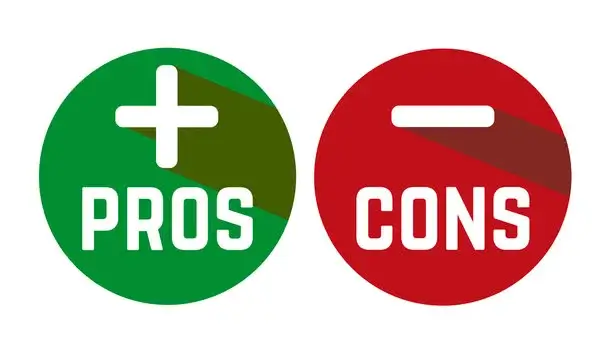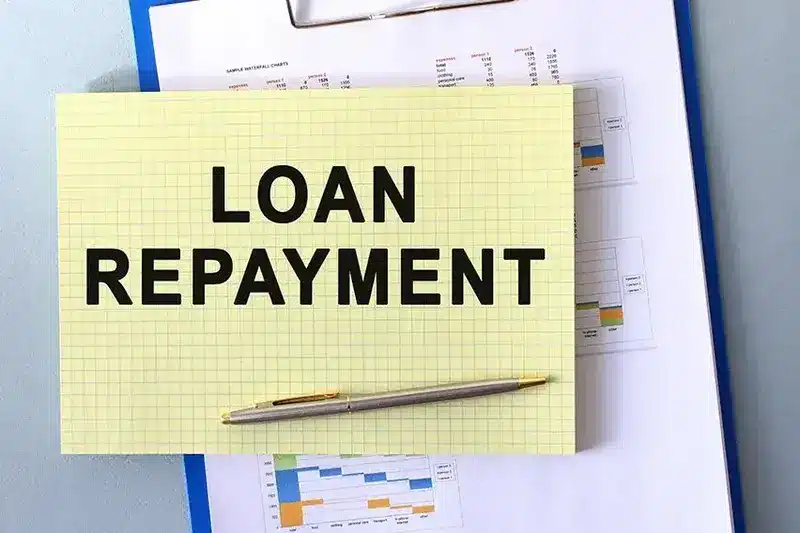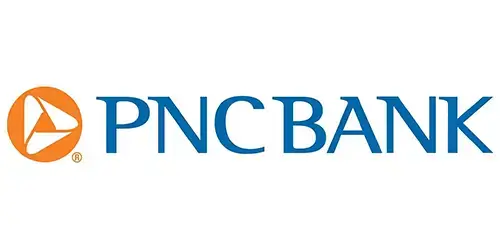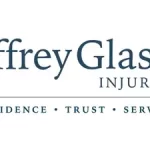Reverse mortgage Kentucky is a type of home loan specifically designed for homeowners aged 62 or older. It allows eligible homeowners to access a portion of their home equity while retaining property ownership. In contrast to traditional mortgages, where the borrower makes monthly payments to the lender, the lender pays the borrower with a reverse mortgage.
In this article, we will examine what a reverse mortgage is, pros and cons of a reverse mortgage Kentucky, reverse mortgage regulations in Kentucky, reverse mortgage Kentucky‘s repayment and loan maturity, eligibility for a reverse mortgage Kentucky, reverse mortgage Kentucky‘s financial implications, risks of a reverse mortgage Kentucky, reverse mortgage Kentucky‘s the application process, reverse mortgage Kentucky‘s alternatives, finding the right reverse mortgage Kentucky provider, and finally the top companies that provide the reverse mortgage Kentucky.
- What is a Reverse Mortgage?
- Pros and Cons of a Reverse Mortgage Kentucky
- Reverse Mortgage Regulations in Kentucky
- Reverse Mortgage Kentucky’s Repayment and Loan Maturity
- Eligibility for a Reverse Mortgage Kentucky
- Reverse Mortgage Kentucky’s Financial Implications
- Risks of a Reverse Mortgage Kentucky
- Reverse Mortgage Kentucky’s the Application Process
- Reverse Mortgage Kentucky’s Alternatives
- Finding the Right Reverse Mortgage Kentucky Provider
- Top Companies Providing Reverse Mortgage Kentucky
- Conclusion
- Reverse Mortgage Kentucky FAQ
What is a Reverse Mortgage?
A reverse mortgage mortgage is a specialized home loan product that allows homeowners aged 62 and older to convert a portion of their home equity into cash. The lender provides funds to the homeowner as a lump sum, line of credit, monthly payments, or a combination of these options. The loan is repaid when the homeowner no longer occupies the home as their primary residence.
Finding the Best Reverse Mortgage Company
When considering a reverse mortgage, finding the best reverse mortgage company that offers favorable terms, reputable service, and fair rates is essential. Researching reverse mortgages and comparing various providers can help seniors identify the company that aligns with their needs and financial goals. Online resources and customer reviews can aid in the search for top-rated reverse mortgage companies and reputable reverse mortgage brokers.
Factors to Consider
Before opting for a reverse mortgage, seniors should carefully weigh the reverse mortgage pros and reverse mortgage cons. Some essential factors to consider include the interest rate on reverse mortgage loans, the loan’s impact on home equity, and the overall costs. Comparing rates from different lenders can help secure the best and lowest price reverse mortgage rates.
Working with a Reverse Mortgage Specialist
To navigate the complexities of a reverse mortgage, working with a reverse mortgage specialist is advisable. These experts can provide personalized guidance, explain the reverse mortgage loan process, and help seniors explore the best reverse mortgage options tailored to their needs and financial situation.
Applying for a Reverse Mortgage
Applying for a reverse mortgage is typically straightforward. Many lenders now offer an online application process, allowing seniors to conveniently apply for a reverse mortgage online. Local reverse mortgage lenders are also available to assist with the reverse mortgage application process and answer any questions.
A reverse mortgage can be an attractive financial tool for seniors seeking home equity without selling their beloved homes. Seeking advice from a reverse mortgage specialist can provide additional peace of mind. However, weighing the pros and cons and considering individual financial circumstances before committing to a reverse mortgage is essential. Ultimately, with proper research and guidance, seniors can make informed decisions leading to financial security and independence in retirement.
Pros and Cons of a Reverse Mortgage Kentucky
A reverse mortgage Kentucky can be an attractive financial option for Kentucky homeowners aged 62 or older and looking for additional income in retirement. With a reverse mortgage Kentucky, homeowners can tap into the equity they have built up in their homes over the years, converting it into cash without selling their property. While this type of loan can offer various benefits, it also comes with certain drawbacks and considerations that individuals should carefully weigh before deciding.

Pros of Reverse Mortgage Kentucky:
- Flexibility: The loan proceeds can be used for any purpose, such as paying off debt, making home improvements, or funding retirement.
- No Monthly Mortgage Payments: Homeowners do not have to make monthly regular mortgage payments with a reverse mortgage Kentucky.
- Access to Home Equity: A reverse mortgage Kentucky gives homeowners access to home equity without selling their homes.
- Loan Not Due Until Home is Sold: The loan balance is not due until the homeowner sells the home, moves out, or passes away.
Cons of Reverse Mortgage Kentucky:
- Higher Costs: Reverse mortgages can be more expensive than traditional mortgages, with reverse mortgage fees and closing costs adding up quickly. The costs of reverse mortgages are relatively high compared to those of a conventional mortgage.
- Reduction in Home Equity: A reverse mortgage Kentucky will reduce homeowners’ home equity, potentially leaving less money for their heirs when the home is sold.
- Accrued Interest: The loan balance can grow over time due to interest, which may further reduce the amount of equity homeowners have in their homes.
- Limited Eligibility: To qualify for a reverse mortgage Kentucky, homeowners must be 62 or older, have equity in their home, and meet other criteria, making it unavailable to some homeowners.
It’s essential for Kentucky homeowners to carefully weigh the pros and cons of a reverse mortgage Kentucky before deciding if it’s the right choice for their financial situation. They should consider their long-term financial goals, the potential costs, risks, and whether they have other options for accessing their home equity, such as downsizing or taking out a traditional mortgage.
Reverse Mortgage Regulations in Kentucky
The reverse mortgage regulations in Kentucky were generally governed by federal guidelines established by the U.S. Department of Housing and Urban Development (HUD). These regulations apply to Home Equity Conversion Mortgages (HECMs), the most common type of reverse mortgage insured by the Federal Housing Administration (FHA).
Here are some critical points regarding reverse mortgage regulations in Kentucky:
- Age Requirement: Borrowers must be 62 to qualify for a reverse mortgage in Kentucky.
- Property Eligibility: The property must be the borrower’s primary residence, and specific property types, such as single-family homes, townhouses, and some approved condominiums, are eligible for a reverse mortgage.
- Financial Assessment: Lenders may assess the borrower’s ability to meet ongoing obligations related to the reverse mortgage, such as property taxes and homeowners’ insurance.
- Non-Borrowing Spouses: Protections are in place to allow non-borrowing spouses to remain in the home even if the borrowing spouse passes away or moves out of the property, as long as certain conditions are met.
- Loan Limits: The maximum loan amount available through a reverse mortgage is subject to FHA loan limits, varying depending on the area.
- Repayment: The reverse mortgage becomes due and payable when the last borrower leaves the home permanently, either by selling the property, moving out, or passing away. The loan must be repaid at that point, typically through the home sale.
- Counseling: Prospective borrowers are required to undergo counseling with a HUD-approved housing counselor. This reverse mortgage counseling session helps individuals understand a reverse mortgage’s terms, costs, and obligations.
It’s important to note that regulations and guidelines can change over time, so we recommend reaching out to a HUD-approved reverse mortgage lender or a financial advisor in Kentucky to get the most up-to-date and accurate information about reverse mortgage regulations in the state. They can provide specific details based on current rules and help determine if a reverse mortgage suits your circumstances.
Considerations for Kentucky Residents
Kentucky homeowners should consult with a HUD-approved counsellor to understand the specifics of reverse mortgages in their state. Below is a table showing hypothetical scenarios for a reverse mortgage based on different ages and home values.
| Age | Home Value | Approximate Loan Amount |
| 65 | $200,000 | $90,000 |
| 70 | $200,000 | $100,000 |
| 65 | $300,000 | $135,000 |
| 70 | $300,000 | $150,000 |
Kentucky residents considering a reverse mortgage should engage in thorough research and consultation. Understanding all aspects of the loan and its long-term implications is crucial. Meeting with a HUD-approved counsellor can provide essential insights specific to the region and personal circumstances. Ultimately, a reverse mortgage may offer valuable financial flexibility for some seniors. Still, careful consideration is required to determine if it is the right choice for each individual’s needs and goals.
Reverse Mortgage Kentucky’s Repayment and Loan Maturity
A reverse mortgage Kentucky can offer financial relief to senior homeowners in Kentucky, allowing them to tap into their home equity without the burden of monthly forward mortgage payments. While this financial arrangement provides numerous benefits, borrowers need to understand a reverse mortgage’s repayment and loan maturity aspects. By gaining insight into the repayment process, prospective borrowers can make informed decisions and ensure they are well-prepared for the eventual conclusion of the reverse mortgage agreement.

In Kentucky, as in other states, a reverse mortgage becomes due and payable under specific circumstances. The reverse mortgage payments and loan maturity of a reverse mortgage is triggered when one of the following events occurs:
- Time Limit: In some cases, reverse mortgages may have a predetermined term limit. For example, some proprietary reverse mortgages or standard Home Equity Conversion Mortgage (HECM) fixed-rate loans may have a fixed loan term, after which the loan becomes due.
- The Last Borrower Leaves the Home: The loan becomes due and payable when the last borrower on the reverse mortgage permanently moves out of the home. This typically happens when the borrower sells the home, moves to a different primary residence, or passes away.
- Failure to Meet Loan Obligations: If the borrower fails to meet certain obligations, such as paying property taxes, maintaining homeowner’s insurance, or keeping the home in good condition, the lender may initiate the repayment process.
- Non-Borrowing Spouse: If the reverse mortgage Kentucky has a non-borrowing spouse, they may continue to live in the home even after the borrowing spouse passes away or moves out. However, certain conditions must be met for the non-borrowing spouse to remain in the house without triggering repayment.
Upon the occurrence of one of these events, the borrower or their heirs have several options for repaying the reverse mortgage Kentucky:
- Sale of the Home: Selling the home is the most common way to repay the reverse mortgage Kentucky. The reverse mortgage proceeds from the sale are then used to repay the loan balance.
- Cash Payment: The borrower or their heirs can repay the reverse mortgage in cash, which can be done through personal funds or other means.
- Refinance: If the borrower or their heirs wish to keep the home, they may choose to refinance the reverse mortgage with a traditional mortgage or other financing options.
- Deed instead of Foreclosure: In some cases, the borrower or their heirs may transfer property ownership to the lender through a “deed in lieu of foreclosure” to satisfy the loan.
It’s important to note that the amount owed on the reverse mortgage is generally the sum of the funds borrowed, accrued interest, and any applicable fees. The repayment process ensures that the lender recoups the outstanding loan balance, and any remaining equity in the home belongs to the borrower or their heirs. To understand the specific terms and conditions of a reverse mortgage in Kentucky, borrowers should review their loan agreement and consult a reverse mortgage Kentucky counselor or a financial advisor.
Eligibility for a Reverse Mortgage Kentucky
A reverse mortgage can be an attractive financial option for senior homeowners in Kentucky looking to access their home equity without the burden of monthly mortgage payments. While specific details may vary depending on the lender and current regulations, this introduction will provide an overview of the typical eligibility requirements and reverse mortgage qualifications for a reverse mortgage in Kentucky. By understanding these essential criteria, potential borrowers can better assess their eligibility and explore the potential benefits of a reverse mortgage tailored to their unique financial circumstances.
To be eligible for a reverse mortgage Kentucky, you must meet specific criteria:
- Age Requirement: Generally, the homeowner must be at least 62 years old to qualify for a reverse mortgage Kentucky.
- Homeownership: The borrower must own the home outright or have a significant amount of equity in the property. It must be their primary residence.
- Financial Assessment: Lenders may consider the borrower’s income, credit history, and other economic factors to determine their ability to meet ongoing obligations, such as property taxes and insurance.
- Counseling: Prospective borrowers are usually required to attend a HUD-approved counseling session to understand the implications and responsibilities of a reverse mortgage.
- Property Type: Single-family homes, townhouses, and some approved condominiums are generally eligible for reverse mortgages. Mobile homes may qualify if they meet specific criteria.
- Debt and Liens: The borrower must not have any federal debts or liens, such as delinquent taxes or outstanding federal loans, that could affect the home’s title.
Before applying for a reverse mortgage, check if your home meets the eligibility requirements and discuss your reverse mortgage options with a reverse mortgage consultant. This way, you can better consider reverse mortgage terms.
Reverse Mortgage Kentucky’s Financial Implications
Like any other state, a reverse mortgage in Kentucky has several financial implications that borrowers should carefully consider before entering into the arrangement. While it can provide a valuable source of funds and increase financial flexibility for seniors, it’s essential to understand the potential costs, benefits, and risks associated with this financial product.
Here are some of the critical financial implications of a reverse mortgage in Kentucky:
- Loan Costs: Reverse mortgages come with upfront costs, including origination fees, closing costs, and mortgage insurance premiums. These costs can significantly impact the overall amount of funds available to the borrower.
- Accrued Interest: Unlike traditional mortgages, with a reverse mortgage, the interest accumulates over time, increasing the loan balance. As a result, the amount owed to the lender grows, potentially reducing the home equity available to borrowers and their heirs.
- Reduced Home Equity: As the loan balance increases, the equity in the home decreases. This may affect the borrower’s ability to leave a substantial inheritance to their heirs.
- Impact on Government Benefits: Funds from a reverse mortgage could affect eligibility for certain need-based government benefits, such as Medicaid or Supplemental Security Income (SSI). It’s essential to understand how a reverse mortgage may impact these benefits.
- Repayment Obligations: Borrowers must meet certain obligations, such as paying property taxes, homeowners’ insurance, and maintaining the property. Failure to meet these reverse mortgage requirements could trigger loan repayment.
- Impact on Heirs: While the borrower can access the home equity during their lifetime, the reverse mortgage may affect the inheritance left for heirs. They may need to repay the loan balance or sell the home to satisfy the debt.
Potential borrowers should consult with a HUD-approved reverse mortgage counselor or a financial advisor to fully comprehend the financial implications of a reverse mortgage in Kentucky. These professionals can provide personalized guidance, assess individual financial situations, and help borrowers make informed decisions that align with their long-term goals.
Risks of a Reverse Mortgage Kentucky
While a reverse mortgage Kentucky can offer financial benefits and enhanced cash flow for senior homeowners in Kentucky, it also comes with inherent risks that borrowers should carefully consider. This financial arrangement allows eligible individuals to access their home equity without making monthly mortgage payments, but understanding the potential pitfalls is crucial to making an informed decision. By understanding these risks, potential borrowers can weigh the pros and cons and determine whether a reverse mortgage aligns with their long-term financial goals and needs.

While a reverse mortgage Kentucky can provide several benefits, there are also some potential risks to consider:
Risk of foreclosure if unable to meet obligations
To keep a reverse mortgage in good standing, borrowers must meet certain obligations, such as paying property taxes, homeowner’s insurance, and maintaining the home. If the borrower is unable to meet these obligations, the lender may initiate foreclosure proceedings. It is important to provide reverse mortgage terms
Decreased inheritance for heirs
A reverse mortgage Kentucky is a loan that is repaid when the borrower dies, sells the home, or permanently moves out. If the loan balance is higher than the value of the home, the borrower’s heirs may not receive any inheritance from the home. This is because the reverse mortgage lender will take ownership of the home and sell it to repay the loan.
Costs associated with a reverse mortgage
There are several costs associated with a reverse mortgage in Kentucky, including origination fees, closing cost, mortgage insurance premiums, and interest. These costs can add up quickly and reduce the amount of cash available to the borrower. Additionally, if the borrower decides to sell the home, they may need to pay off the reverse mortgage loan balance, which can be substantial
It’s important to carefully consider the potential risks and cost associated with a reverse mortgage Kentucky before making a decision. This should be considered when looking at reverse mortgage options. Homeowners should discuss their options with a financial advisor and seek out reputable lenders who can provide transparent information about the loan terms and costs.At the same time, companies that do reverse mortgatges should be consulted.
Reverse Mortgage Kentucky’s the Application Process
The application process for a reverse mortgage Kentucky allows senior homeowners to tap into their home equity without the burden of monthly mortgage payments. As one of the widespread financial options for retirees, a reverse mortgage allows eligible individuals aged 62 and older to convert a portion of their home’s equity into tax-free cash. Understanding this process will empower potential borrowers to make well-informed decisions and explore the potential benefits of a reverse mortgage tailored to their specific financial needs. Applicants should be aware that reverse mortgage salespersons are not necessarily financial planners or eldercare experts and do not necessarily have a borrower’s best interest in mind.
The application process for a reverse mortgage in Kentucky is similar to that in other states and typically involves the following steps:
- Research and Education: Before applying for a reverse mortgage Kentucky, gathering information and educating yourself about the reverse mortgage product is essential. Understand how reverse mortgage work, their reverse mortgage benefits, costs, and potential risks. You can consult with HUD-approved housing counselors who can provide unbiased guidance and answer your questions.
- Eligibility Check: Ensure you meet the eligibility requirements for a reverse mortgage in Kentucky. The primary borrower must be at least 62, own the home or have substantial equity, and use the property as their primary residence.
- Counseling Session: As part of the application process, you must attend a counseling session with a HUD-approved housing counselor. The counselor will review the details of reverse mortgages, explain the implications, and assess whether it’s a suitable financial option for your needs.
- Choose a Lender: Research and compare different reverse mortgage lenders in Kentucky. Each lender might offer additional terms, interest rates, and fees. Choose a reputable lender with experience in reverse mortgages and a good customer service track record.
- Loan Application: Once you’ve chosen a lender, you must complete a loan application. The lender will gather necessary information about you and the property to assess your eligibility and determine the loan amount you may qualify for.
- Financial Assessment: The lender may conduct an economic assessment to evaluate your ability to cover ongoing expenses related to the reverse mortgage, such as property taxes, insurance, and maintenance.
- Home Appraisal: A professional appraiser will assess the value of your home. The appraised value is a crucial factor in determining the loan amount.
- Underwriting and Approval: After gathering all the necessary documentation and completing the assessment, the lender will underwrite the loan application. If everything meets the reverse mortgage requirement, the lender will approve the reverse mortgage.
- Closing: Once the loan is approved, you’ll schedule a closing meeting where you’ll sign the loan documents. During the conclusion, you’ll have the opportunity to review the terms and ask any remaining questions.
- Disbursement of Funds: After the closing, there is typically a three-day right of rescission period where you can change your mind and cancel the loan. After this period, the funds will be disbursed to you, and you can choose how to receive them (lump sum, line of credit, monthly payments, or a combination).
Working with a reputable lender who can provide transparent information about the loan terms and costs is important. A reverse mortgage advisor can also help you evaluate your reverse mortgage options and make an informed decision.
Reverse Mortgage Kentucky’s Alternatives
While a reverse mortgage Kentucky can provide financial relief for senior homeowners in Kentucky, it’s essential to explore alternative options before committing to this financial arrangement. Several alternatives exist, each with its advantages and implications. Understanding these alternatives will empower potential borrowers to make well-informed decisions that suit their financial needs and goals. By exploring these options, seniors can determine the most suitable approach to unlock their home equity and secure their financial future.

While a reverse mortgage can benefit eligible homeowners in Kentucky, it is not the only option available. Some alternative options to consider include the following:
Home Equity Loans or Lines of Credit
A home equity loan or line of credit allows homeowners to borrow against their home equity, but unlike a reverse mortgage, the loan is repaid in monthly installments. This can be a good option for homeowners who need a lump sum of cash or want to maintain control of their home equity.
Seeking Government or Non-Profit Assistance
There are several government and non-profit programs available in Kentucky that can provide financial assistance to eligible homeowners. These programs may include home repair grants, property tax relief, or energy efficiency assistance.
Selling the Home and Downsizing
Selling the home and downsizing to a smaller, more affordable home can give homeowners a lump sum of cash and reduce monthly expenses. This can be a good option for homeowners who no longer need a large home or want to simplify their living arrangements.
Before making a decision, it’s important to consider all available reverse mortgage options and discuss your situation with a financial advisor. This can help you decide and find the best solution for your needs.
Finding the Right Reverse Mortgage Kentucky Provider
Finding the right reverse mortgage provider in Kentucky involves a few important steps to ensure you select a trustworthy and suitable option that aligns with your financial needs. Here’s a guide to help you in your selection:
- Educate Yourself on Reverse Mortgages: Learn how reverse mortgages work, the available types, and the associated risks and benefits. Knowing the basics will help you ask the right questions and make informed decisions.
- Research Local Regulations: Reverse mortgage regulations can vary by state. Make sure you understand any specific requirements or protections in Kentucky, such as counselling requirements or consumer protections.
- Look for Reputable Providers: Choose well-established providers with a good reputation. Check reviews, ratings from financial agencies, and feedback from other consumers, especially those in Kentucky.
- Consult with a HUD-Approved Counselor: The U.S. Department of Housing and Urban Development (HUD) requires all prospective reverse mortgage borrowers to undergo counselling with a HUD-approved counsellor. This step is crucial for understanding the implications of a reverse mortgage.
- Ask Questions: When you meet with providers, ask detailed questions about their loan products, terms, and your obligations as a borrower. Ensure that you feel comfortable with their level of customer service and support.
- Consider the Impact on Heirs: Understand how a reverse mortgage will affect your estate and any inheritance you plan to leave to your heirs. Make sure your family is aware of and understands your decisions regarding a reverse mortgage.
By following these steps, you can more confidently find a reverse mortgage provider in Kentucky that meets your needs and provides reliable and ethical service.
Top Companies Providing Reverse Mortgage Kentucky
If you’re considering a reverse mortgage in Kentucky, finding the best-rated reverse mortgage companies is essential to ensure you get the best rates, terms, and customer service. Reverse mortgages can be a powerful tool to supplement your retirement income or cover unexpected expenses, but they also come with risks and costs. Choosing a reputable lender with a strong track record of providing high-quality service and transparent information about the loan terms and costs can ensure you’re getting the most out of your reverse mortgage.
Here is a list of the best reverse mortgage Kentucky companies:
- All Reverse Mortgage
- LoanDepot
- Liberty Home Equity
- PNC Mortgage Bank
Let’s review the best reverse mortgage Kentucky companies in order:
All Reverse Mortgage

All Reverse Mortgage is a mortgage lending company headquartered in Orange, California that specializes in providing reverse mortgage loans to seniors aged 62 and over. A reverse mortgage is a type of loan that allows homeowners to cash out some of their home equity without selling their home or making monthly mortgage payments. Instead, the loan is repaid when the borrower moves out of the house, sells the house, or dies.
All Reverse Mortgage offers a variety of reverse mortgage products, including Home Equity Conversion Mortgages (HECMs), large reverse mortgages, and proprietary reverse mortgages. The company has been operating since 2004 and operates in all 50 states.
Reverse Mortgage Kentucky with All Reverse Mortgage Company
All Reverse Mortgage provides reverse mortgage loans to eligible seniors in Kentucky. As a licensed mortgage lender in all 50 states, including Kentucky, the company can provide reverse mortgage loans to homeowners aged 62 or older whose primary residence is in Kentucky.
Kentucky reverses mortgage loans are available in various forms, including Home Equity Conversion Mortgages (HECMs), jumbo reverse mortgages, and proprietary reverse mortgages. These loans can be used to access the equity in your home and turn it into cash that you can use to pay for living expenses, healthcare costs, home renovations, or any other expenses you may have.
If you are a senior homeowner in Kentucky and would like to learn more about a reverse mortgage or get a reverse mortgage loan, contact All Reverse Mortgage directly. The company has a team of experienced professionals who can answer your questions and help you determine if a reverse mortgage is right for you.
To learn more about All Reverse Mortgage, you can review this article: All Reverse Mortgage
From this link you can visit All Reverse Mortgage‘s website: https://reverse.mortgage/
All Reverse Mortgage Phone Number: 800-565-1722
LoanDepot

LoanDepot is a large, non-bank mortgage lender headquartered in Foothill Ranch, California. Founded in 2010, this company has since grown into one of the largest mortgage lenders in the United States. LoanDepot offers a wide range of mortgage products, including conventional loans, FHA loans, VA loans, and jumbo loans, as well as home equity loans and refinancing options.
The company operates online and through a network of licensed loan officers nationwide. Its streamlined mortgage application process has gained popularity, allowing borrowers to apply for loans online and receive personalized loan quotes quickly.
Reverse Mortgage Kentucky with LoanDepot
LoanDepot did offer reverse mortgage Kentucky, also known as Home Equity Conversion Mortgages (HECMs). A reverse mortgage Kentucky is a loan available to homeowners aged 62 and older, allowing them to convert a portion of their home’s equity into cash without selling the property or making monthly mortgage payments.
With a reverse mortgage Kentucky, borrowers can receive funds in various ways, such as a lump sum, monthly payments, or a line of credit. The loan is repaid when the borrower sells the home, moves out permanently, or passes away. The home sale typically covers the repayment, and if the sale proceeds exceed the loan balance, the excess goes to the borrower or their heirs.
It’s important to note that the terms and conditions of reverse mortgage Kentucky can vary between lenders and may depend on factors such as the borrower’s age, home value, and interest rates. Additionally, it’s advisable to consult a financial advisor to understand if a reverse mortgage Kentucky suits your financial situation and needs.
To learn more about LoanDepot, you can review this article: LoanDepot
From this link you can visit LoanDepot‘s website: https://www.loandepot.com/
LoanDepot Phone Number: (888) 983-3240
Liberty Home Equity

Liberty Home Equity was a company that specialized in providing reverse mortgages for homeowners in the United States. A reverse mortgage is a financial product that allows homeowners aged 62 or older to convert part of their home’s equity into tax-free income or a line of credit. With a reverse mortgage, borrowers do not need to make monthly mortgage payments; instead, the loan is repaid when the borrower no longer uses the home as their primary residence, typically when they sell the house or pass away.
Liberty Home Equity operates as a leading provider of reverse mortgages in the United States. As part of the company’s commitment to helping seniors maintain financial independence, they offer various reverse mortgage options tailored to each homeowner’s specific needs and goals.
Reverse Mortgage Kentucky with Liberty Home Equity
Liberty Home Equity provided reverse mortgage Kentucky to homeowners aged 62 and older in various states, including Kentucky. A reverse mortgage Kentucky allows eligible homeowners to access a portion of their home’s equity without needing monthly mortgage payments.
If you are a homeowner in Kentucky and considering a reverse mortgage Kentucky with Liberty Home Equity, the process generally involves the following steps:
- Eligibility Check: To qualify for a reverse mortgage Kentucky, you must be 62 years old and have sufficient equity in your home. Liberty Home Equity will assess your eligibility based on age, home value, and other factors.
- Personalized Consultation: A representative from Liberty Home Equity will guide you through the process and discuss the various reverse mortgage Kentucky options available to you. They will help you understand the loan terms, repayment options, and potential benefits.
- Counselling Session: Before proceeding with the application, you must attend a counselling session with an independent HUD-approved counsellor. This session is designed to ensure that you fully understand the terms and implications of a reverse mortgage Kentucky.
- Application and Underwriting: Once you’ve completed the counselling session and decided to proceed, you must apply to Liberty Home Equity. The company will then underwrite your loan, reviewing your financial information and verifying your eligibility.
- Loan Approval and Closing: You will proceed to the closing process if your application is approved. You will sign the necessary paperwork to finalize the reverse mortgage Kentucky during the closing.
- Loan Disbursement: After closing, you will receive the funds from your reverse mortgage Kentucky according to the payout option you selected during the application process (e.g., lump sum, line of credit, or monthly payments).
Remember that specific details and terms may vary based on your circumstances and the current offerings of Liberty Home Equity. Additionally, comparing offers from multiple lenders and consulting with a financial advisor to determine if a reverse mortgage Kentucky is the right financial option for your needs is essential.
To learn more about Liberty Home Equity, you can review this article: Liberty Home Equity
From this link you can visit Liberty Home Equity‘s website: https://libertyreversemortgage.com/
Liberty Home Equity Phone Number: 866.751.2606
PNC Mortgage Bank

PNC Mortgage Bank is a well-known financial institution that offers a variety of mortgage products to help homeowners achieve their homeownership goals. From traditional fixed-rate and adjustable-rate mortgages to government-backed loans like FHA and VA loans, PNC Mortgage Bank has various options to fit your unique needs and circumstances.
PNC reverse mortgages to eligible homeowners in Kentucky. To qualify for a reverse mortgage, you must own your home outright or have a significant amount of equity in your home. You must also live in the home as your primary residence and be able to continue to pay property taxes, homeowner’s insurance, and other expenses associated with homeownership.
If you are considering a reverse mortgage in Kentucky, it is important to research and carefully consider your options. Talk to a mortgage lender like PNC Mortgage Bank and a financial advisor to determine whether a reverse mortgage is right for your financial situation.
Reverse Mortgage Kentucky with PNC Mortgage Bank
PNC Mortgage Bank‘s reverse mortgage program in Kentucky offers several payment options to meet the needs of borrowers. These payment options include a lump sum payment, a line of credit, monthly payments, or a combination. The borrower can choose the best payment option that fits their financial situation and goals.
A reverse mortgage Kentucky, also known as a Home Equity Conversion Mortgage (HECM), is a type of home loan that allows homeowners aged 62 or older to convert a portion of their home equity into cash. The homeowner can receive the funds as a lump sum, a line of credit, fixed monthly payments, or a combination of these options. The loan does not require monthly mortgage payments; the loan balance is typically repaid when the homeowner sells the home, moves out permanently, or passes away.
Suppose you want to explore reverse mortgage options in Kentucky with PNC Mortgage Bank. In that case, we recommend contacting their reverse mortgage specialists or visiting their official website for detailed information on the products, eligibility criteria, and application process. A financial advisor may also be beneficial in helping you understand if a reverse mortgage Kentucky is the right choice for your specific financial situation.
To learn more about PNC Mortgage Bank, you can review this article: PNC Mortgage Bank
From this link you can visit PNC Mortgage Bank‘s website: https://www.pnc.com/en/personal-banking.html
PNC Mortgage Bank Phone Number: 1-800-822-5626
Conclusion
In conclusion, a reverse mortgage Kentucky can be useful for Kentucky homeowners to access home equity without selling their homes. While a reverse mortgage can provide financial flexibility and no monthly mortgage payments, it can also reduce home equity and higher costs. You can use reverse mortgage services from the best reverse mortgage lenders. You can ask any of your questions to the reverse mortgage experts of these top reverse mortgage companies we have mentioned. It’s essential to consult with a financial advisor or reverse mortgage specialist to determine if a reverse mortgage is the right option for your financial situation. By doing so, you can make an informed decision and ensure that a reverse mortgage is right for you.
Reverse Mortgage Kentucky FAQ
A reverse mortgage Kentucky is a financial product designed for homeowners aged 62 and older, allowing them to convert part of their home equity into cash. Unlike traditional mortgages, homeowners are not required to make monthly payments. Instead, the loan balance increases over time and is typically repaid when the homeowner sells the home, moves out, or passes away. This FAQ addresses common questions and provides clear, concise information about the benefits, requirements, and considerations associated with reverse mortgage Kentucky.
Are reverse mortgages safe for seniors?
Typical closing costs for a reverse mortgage may include origination fees, mortgage insurance premiums (MIP), appraisal fees, title search and insurance, counseling fees, recording and notary fees, and miscellaneous closing costs.
Can you refinance a reverse mortgage with another reverse mortgage?
Yes, you can refinance a reverse mortgage with another reverse mortgage through a process called reverse mortgage refinance.
Can I get a reverse mortgage on a condo?
Yes, you can get a reverse mortgage on a condo if the condo complex is approved by the Department of Housing and Urban Development (HUD) and meets specific requirements.
Are reverse mortgages predatory?
Reverse mortgages themselves are not inherently predatory. However, there have been instances of predatory practices by some lenders and agents, targeting vulnerable seniors, which has led to concerns about the potential for predatory behavior in the reverse mortgage industry. Seniors must be cautious, seek unbiased advice, and work with reputable lenders to make informed decisions.
Are all reverse mortgages backed by HUD?
No, not all reverse mortgages are backed by HUD (the U.S. Department of Housing and Urban Development). The most common type of reverse mortgage, the Home Equity Conversion Mortgage (HECM), is insured by HUD and backed by the Federal Housing Administration (FHA). HECMs account for the majority of reverse mortgages in the United States.






















